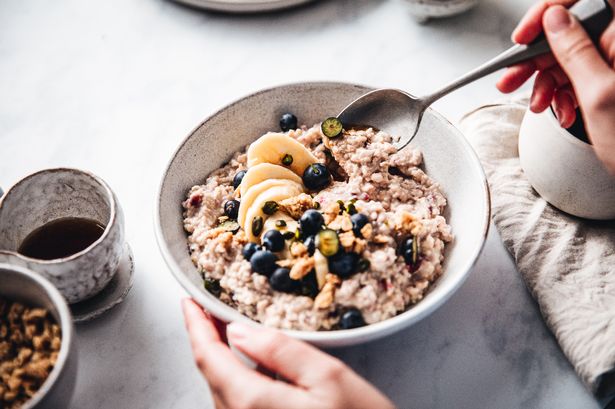Your cart is currently empty!
Two simple breakfasts recommended to combat high cholesterol levels

High cholesterol is a major risk factor for a number of serious health conditions, so the NHS has recommend two simple breakfasts to help combat high levels.
Folks grappling with high cholesterol could see a significant improvement by incorporating two specific breakfast options into their morning routine. Elevated cholesterol levels mean there’s an excess of the waxy substance in your bloodstream. While cholesterol plays a vital role in the body, an overabundance can lead to fatty deposits forming in blood vessels. As time marches on, these deposits can narrow and stiffen arteries, impeding blood flow. This condition is a notorious risk factor for severe health issues, including heart disease and strokes.
Alarmingly, the NHS reports that around 40 per cent of UK residents are contending with high cholesterol levels. Dietary habits are a primary contributor to elevated cholesterol, particularly foods laden with saturated fats. However, it’s not all doom and gloom, as certain dietary choices can aid in reducing cholesterol. Heart UK experts have shared their insights, revealing that there are several foods that can actively help to lower cholesterol levels as part of a healthy diet.
Among the items touted for their cholesterol-combating abilities are two beloved breakfast staples: porridge and beans. Heart UK has revealed that oats, rich in a fibre known as beta glucan, can help lower cholesterol levels. Eating three grams of beta glucan a day as part of a healthy diet can help to lower cholesterol by forming a gel that binds to cholesterol-rich bile acids in the intestines.
Beans on toast, a classic British dish, could also help reduce cholesterol levels due to the high fibre content of beans. Some types of fibre can help to lower cholesterol by blocking some cholesterol absorption from the intestines into the bloodstream. Pulses such as beans, peas, and lentils are particularly high in this kind of fibre. Sweet potato, aubergine, okra, broccoli, apples, strawberries, and prunes are also good options to consider.
When it comes to your morning toast, opting for wholemeal bread packed with beta glucan and fibre is recommended. The NHS also suggests incorporating other foods into your diet to help reduce cholesterol levels, such as oily fish, olive oil, nuts, seeds, fruits, and vegetables. Regular exercise, reducing alcohol intake, and quitting smoking are also advised.
In summary, making small changes to your breakfast routine, like incorporating porridge and beans, can have a positive impact on lowering cholesterol levels and improving overall health. Combined with a healthy diet and lifestyle choices, managing cholesterol levels can contribute to a reduced risk of various health conditions. Consultation with a healthcare professional is recommended for personalised advice on managing cholesterol levels effectively.
